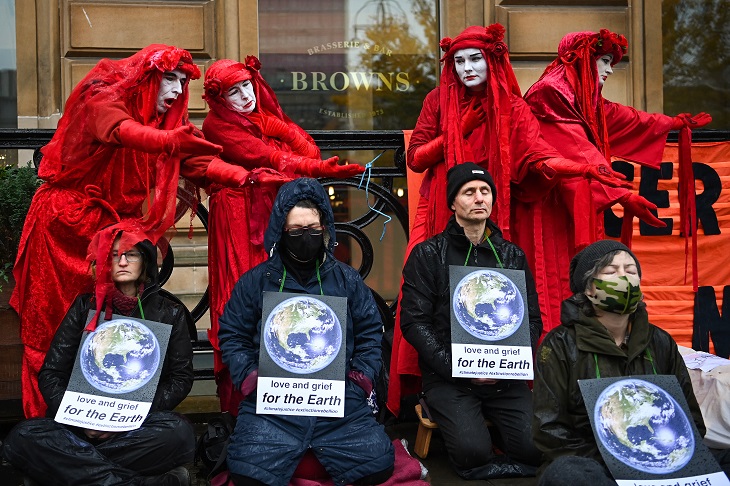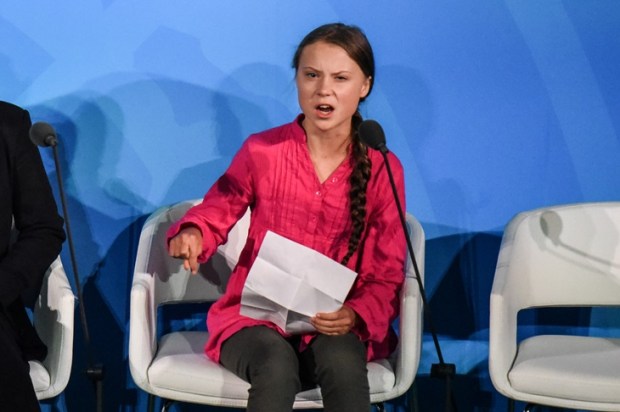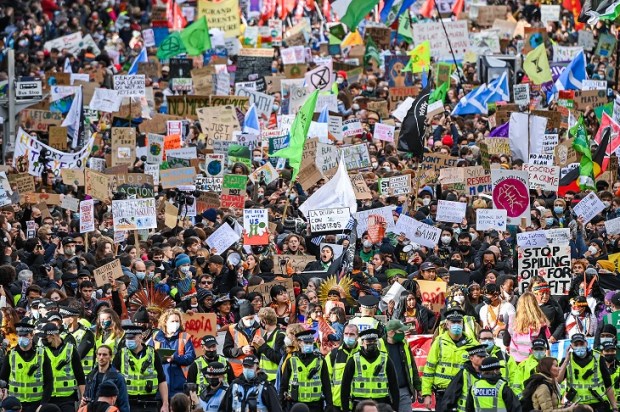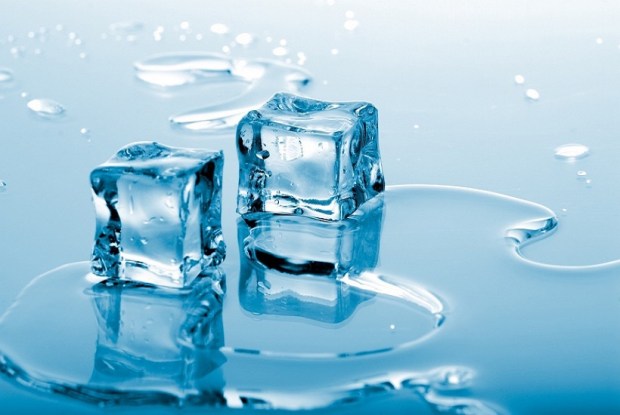Australia is my ‘burned-over’ country.
Not burnt out in the sense of droughts and bushfires; the term ‘burned-over district’ was used to describe parts of western New York State in the early 19th century where religious revivals would flare up, burn fiercely, and then die out.
Church attendance is continuing its long-term decline in Australia, but it seems that we are as religious as we ever have been with a high proportion of voters in some electorates choosing the religion of Climate Change. Climate Change as a result of carbon dioxide is a matter of faith; there is no consistent physical evidence for it and a lot of reputable scientists say that it has a minuscule effect at best.
As soon as the election was over, Climate Change (the religion) was ramping up its destruction of the Australian economy with looming power blackouts and skyrocketing energy prices. Beyond the fall in our standard of living, the threat from Climate Change is existential in that we are denying ourselves the fuel security we should have from converting our low-grade coal to diesel and petrol.
Sri Lanka is a warning to us. Their ruling politicians decided to take the country green and it has now ground to a halt. If you think Australia is better than that – that we could do something very foolish and escape the consequences, well no we aren’t. We won’t be spared, our luck will run out at some stage.
We are taunting the Gods of the Copybook Headings with our stupidity; for years we have been the only country delinquent with respect to our obligations to stockpile fuel under an international treaty. For the last 30 years Australian governments, Labor and Liberal, would rather spend money on anything but the few things that really matter, like fuel security. The things that you do first so that we can all sleep soundly at night.
Our current religious revival had its beginnings with the collapse of the Soviet Union in 1991. Suddenly socialism was discredited as a belief system and a new faith was needed in a hurry. Thus the Rio summit of 1992 was born. This little monster suckled on the public teat for funding when it should have been forgotten in its crib.
John Howard, as Prime Minister, was especially keen on the idea. Legend has it that he was a closet fanboy of nuclear power. Decades ago, a legislated carbon tax had the potential to raise the cost of coal-fired power generation – possibly far enough to make nuclear power competitive. But Howard’s successors, both Labor and Liberal, instead twisted the market towards unreliable energy with its ultimate waste mountain of turbine blades and clapped-out photovoltaic panels. We missed out on nuclear power and instead got the worst possible outcome.
Communism is said to have failed because it was never tried hard enough. Similarly, our new Minister for Climate Change and Energy, Chris Bowen, says that our power system could be fixed by increasing the unreliable component. In interviews, he looks particularly animated and agitated, with his hands going in all directions. Despite whatever words come out of his mouth, how sunlight and rain are really the same, Bowen looks as though he knows he is selling a pile of nonsense. That is his problem, it need not be ours.
Where to from here? We should get that sorted as soon as possible. Labor has only a slim majority and doesn’t control the Senate. And with policies that are only going to make things worse, the situation is unstable. The first thing to do is have a Royal Commission into the science of Climate Change. The people who voted Teal will have to find something else to believe in such as microplastics in the ocean.
Secondly, we should figure out where we will end up and then work back from there to determine what is the most cost-effective path to that inevitable future. One day we will run out of oil and coal and everything else we can dig up and burn. There will be a day without fossil fuels no matter what anyone thinks of them now and we should prepare ourselves.
The future will be either nuclear or darkness with a medieval standard of living. Power from photovoltaics and wind power isn’t cheap enough to make more solar panels and wind turbines – no further correspondence need be entered into. The ones we have at the moment are only an artefact of cheap Chinese coal power.
The best possible nuclear technology, something like the integral fast reactor, hasn’t been commercialised yet. The current dominant nuclear reactor technology, light water reactors burning U235, is inherently wasteful and unstable. For the sake of the generations of Australians who will succeed us, we need to get the best possible nuclear technology sorted out and settled down as soon as possible. Until we do that, we are at risk.
Hydrogen will have a role in the nuclear utopia to come. Nuclear power will be used to run the electrolysis machines to produce hydrogen for converting biomass into diesel and petrol. In the interim, we should convert low-grade coal, not good enough for export, into diesel and petrol. We have hundreds of billions of tonnes of the stuff, enough to make hundreds of billions of barrels of fuel. And the price of oil has risen high enough to make doing so commercial today.
Botswana, the landlocked country north of South Africa, has announced that it will build a 12,000 barrel per day coal-to-liquids (CTL) plant for US$2.5 billion. We blew $300 billion in a couple of years on Covid to no good effect. That sum would pay for 88 such plants producing a total of one million barrels per day which also happens to be Australia’s rate of fuel consumption. And think of the jobs all over the country. And the effect on our balance of payments of not having to find $150 million each and every day for imported fuel. We can pay for it, it is economic now and we should do it.
An average Australian car doing 20,000 km per annum at 10 km per litre of fuel will consume 2,000 litres per annum. The capital intensity of the planned CTL in Botswana is $4.91 per annual litre of fuel product. So the ability to make 2,000 litres per annum will have a capital cost around $10,000. Most Australians would make that investment to ensure their mobility if they had the opportunity to do so.
Labor is capable of the necessary ideological flip-flop to get the country back on track. In the 1960s the Labor Party reversed its opposition to state aid for private schools to make themselves electable. In the 1980s Labor brought in economic reforms that the previous Liberal government had been too scared or too stupid to bring in when it should have.
David Archibald is the author of The Anticancer Garden in Australia
Got something to add? Join the discussion and comment below.
Get 10 issues for just $10
Subscribe to The Spectator Australia today for the next 10 magazine issues, plus full online access, for just $10.


























Comments
Don't miss out
Join the conversation with other Spectator Australia readers. Subscribe to leave a comment.
SUBSCRIBEAlready a subscriber? Log in